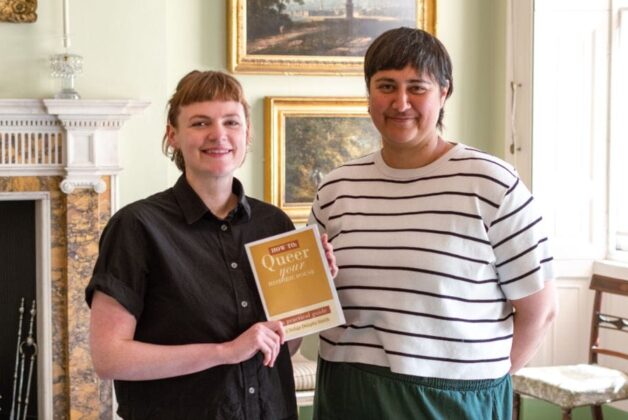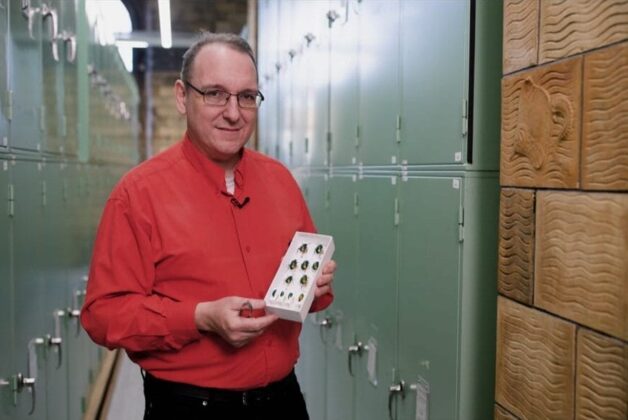New book ‘Ethics of Contemporary Collecting’ offers museum professionals insights on ethical challenges in acquiring modern artefacts.
A new collection of stories from the complex world of ethical contemporary collecting has been published, offering museum professionals a valuable resource for navigating this evolving landscape.
‘Ethics of Contemporary Collecting’ is a collection of more than 20 case studies from professionals in the museums sector, including those at organisations including Imperial War Museums, the Horniman, People’s History Museum, and the Museum of Homelessness.
The case studies combine to examine evolving ethical considerations across three main sections, covering topics such as the climate crisis, digital collecting, and community-centred approaches.
The book has been compiled by four editors: Jen Kavanagh, a freelance curator and oral historian; Ellie Miles, curator and researcher; Rosamund Lily West, lecturer in architectural studies at the University of Manchester; and Susanna Cordner, senior research fellow at London College of Fashion at the University of the Arts London
Via practical examples, the book entails how professionals are addressing ethical dilemmas in contemporary collecting. It aims to highlight leading practices and illustrate ethical approaches as work in this area progresses.
The book’s editors spoke to Advisor ahead of its publication, describing it as “a real chance to review and unpick some of the hidden ethical considerations of contemporary collecting”.
Among topics touched upon, they explained, are “preserving evidence of illegal activity, if museums can collect without taking ownership, how museums collect evidence of hate without exacerbating harm or how curators have approached collecting people’s experiences of bereavement”, they explained.”
Also inside is insight into how museums are collecting people’s experiences of homelessness, of imprisonment, and of fertility treatment, as well as the spontaneous memorials left for the victims of terror attacks.
“We thought this would really be of use to people working on contemporary collecting, as well as future museum workers, including those looking to move into curatorial work,” they said.
“We felt museum managers, leaders, students, project funders and trustees would benefit from the insights our contributors have shared.”
The book builds upon work published in 2020 by Miles via the London Transport Museum; ‘Contemporary Collecting: An Ethical Toolkit for Museum Practitioners’. That work identified five pillars; Balance, Decolonisation, Climate Emergency, Trauma and Distress, Digital Preservation.
Asked if – and how – conversations around ethical collecting have evolved in the last four years, the editors said that while those existing pillar remain relevant, since its 2020 publication there has been an acceleration of contemporary collecting.
“2020 saw a big rise in the number of contemporary collecting projects – some of which were informed by that toolkit, others by significant world events. So it was good to see how some collecting work had moved on so quickly in the last few years.”
The book, they explain, has “chapters where older museological concepts are being reconfigured, broken down or developed more fully – something like the 1970s ecomuseum concept for instance.
“It’s exciting to see how that’s being done in Taiwan, and the parallels with questions we have about how we preserve born-digital objects.
“Some of the projects and the ethics they explore are much more current, and the work into how to approach them are continuing to evolve. The collecting of spontaneous memorials, for example, and the ethics of collecting trauma, are still being explored.”
Asked about the connecting themes which emerge from the book’s varied case studies, the editors explained: “This sense of transparency around the museum worker’s responsibilities is definitely a repeated theme across a lot of the chapters.”
“The contributors to this book have been so generous in sharing their work, and make the time and space to reflect on their practice. A lot of the skill and sensitivity often goes unnoticed, but it’s here throughout the chapters. Working with people is such a human-first process isn’t it? So the book is about examining our role as practitioners as well as the significance of the objects we collect.”
Looking to the future, the group predicts that the climate crisis and the aftermath of the Black Lives Matter protests will continue to be among the most important factors in ethical considerations.
They explained that the climate crisis and its uneven changes to the world, will “continue to play a role in how museums operate and what responsibilities they have towards the environment.
“Collecting in the aftermath of George Floyd’s murder and the Black Lives Matter resurgence, for example, is ongoing and is leading to new ways of working. We’re looking forward to seeing what the outcomes of this look like over the coming years.”
The book concludes with a series of ‘Activations’; discussion prompts for both individuals and institutions intended to keep considerations in evolution.
‘Ethics of Contemporary Collecting’ is published by Routledge, and is available from 9 October 2024.





